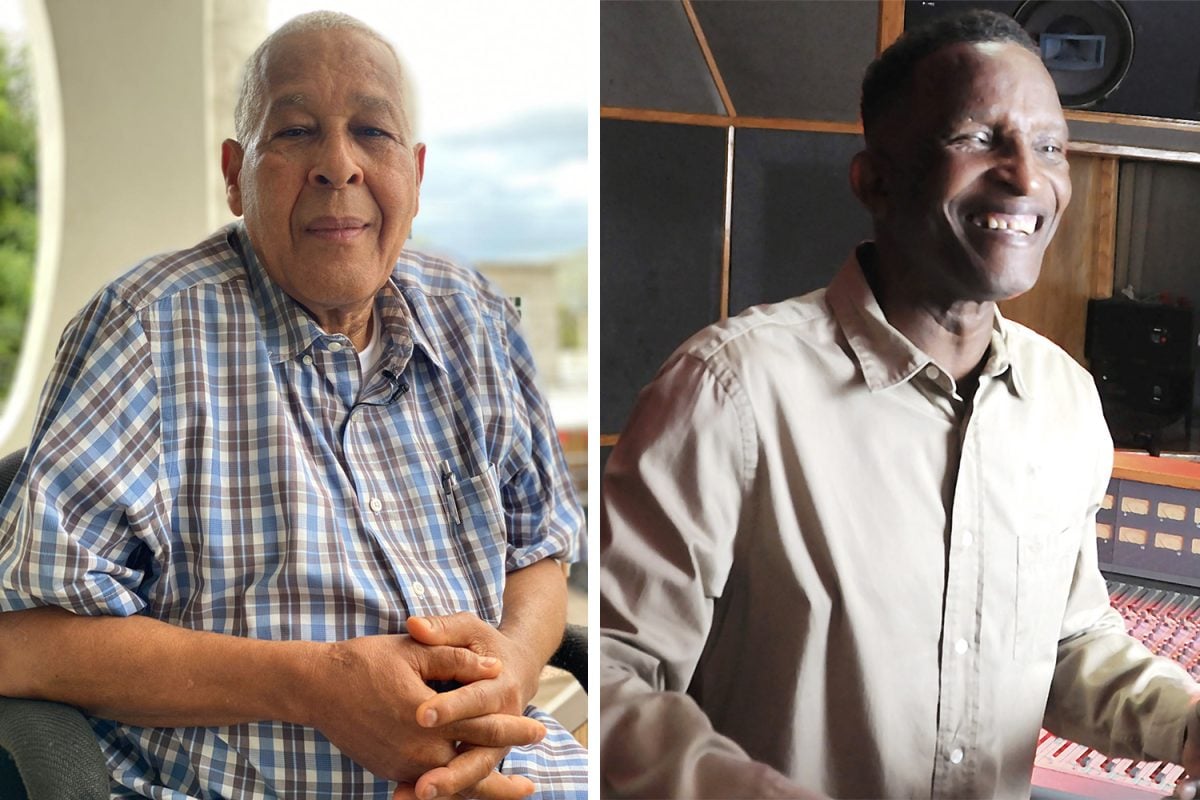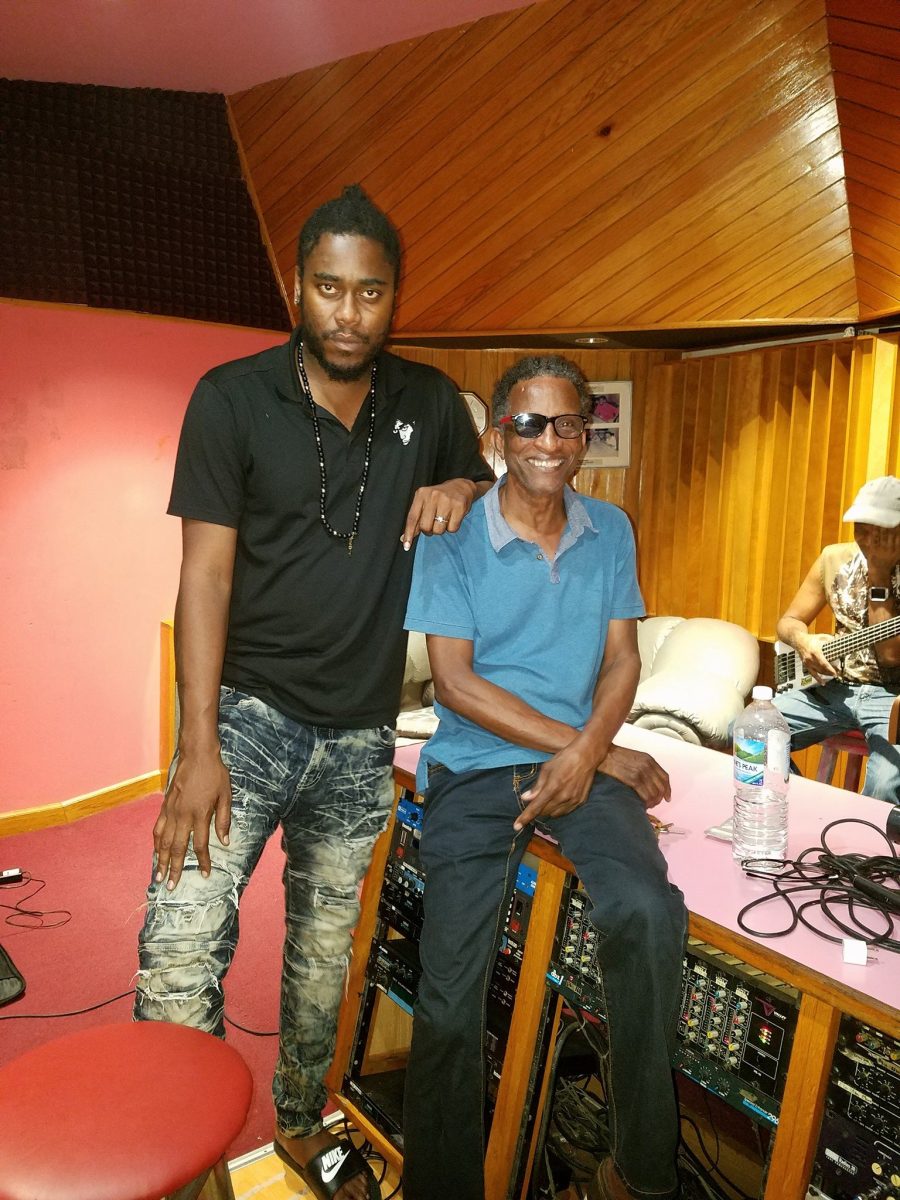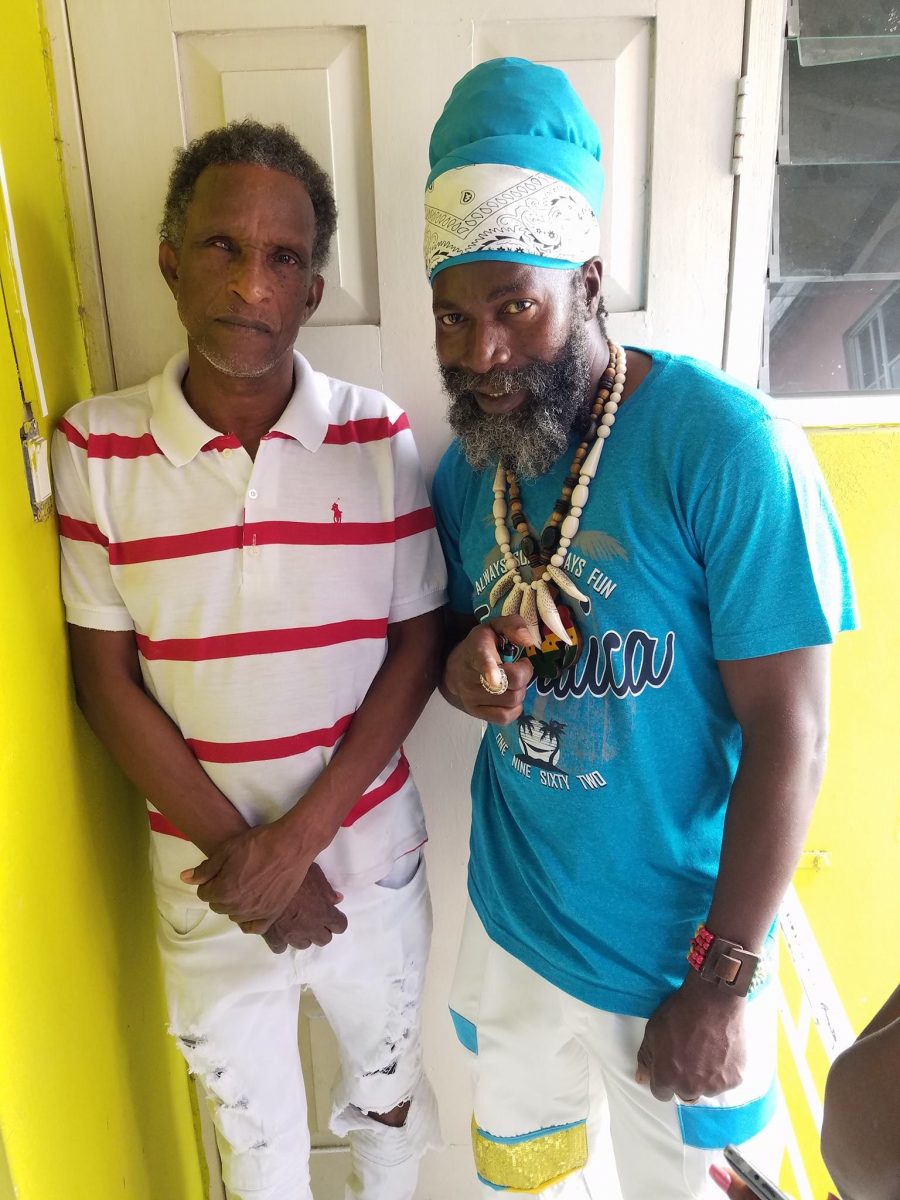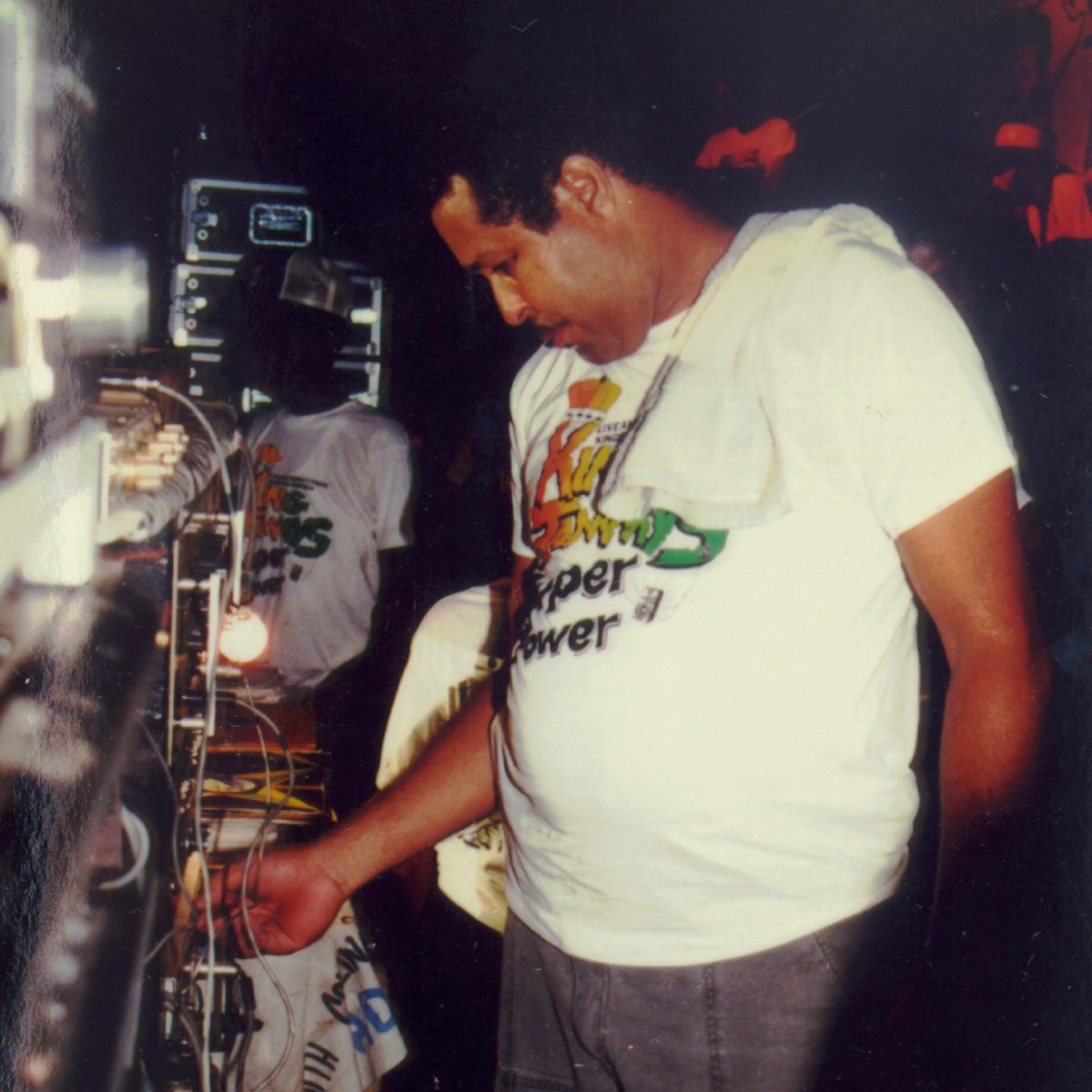Interview: Veterans King Jammy, Clive Hunt Decry Reggae And Dancehall’s Deviation From Tradition

The perceived descent of Dancehall and Reggae music has been the subject of much discussion. Now furthering that discourse are legendary Jamaican producers, Lloyd ‘King Jammy’ James and Clive Hunt, who shared their unique insights with DancehallMag, drawing from nearly 100 years of musical experience between them.
While prevailing dialogue about either genre’s missteps has largely been positioned against the rise of similar sounds like Afrobeats, neither Hunt nor King Jammy saw relevance in those comparisons. Instead, both men contended that the issues plaguing either genre were the same across the board and that at the root of them was one thing – a devastating deviation from the old and proven formula.
For King Jammy, whose latest project is a Gregory Issacs album titled Rebirth Of The Cool Ruler , the task of pinpointing the moment the genre lost its magic is hardly an arduous one. As the expert musician tells us, Dancehall’s descent directly coincides with the rise in songs that made it impossible to find romantic love at a dance. More specifically, he says, “once a man could no longer go to a dance and find a wife, that’s when Dancehall start drop.”
He expounded on that sentiment, ultimately describing Dancehall’s evolution – for the most part – as boring, aimless and dead, even as he admitted that “some good tune a mek still”.
“You see di music wa dem a mek nowadays, dem too dead!” King Jammy emphatically stated. “Yuh cyaa dance to dem – and when me seh dance, me mean like when you and a woman dance – together. A so me know it. Me nuh know ‘bout dis ting weh yuh come in and man stand up ova deh suh in a waa corner a do moves by dem self, and woman stand up inna fi dem corner a do dem own ting.”
No Love In The Dance
That dynamic, according to the producer extraordinaire, does little to engender love – a crucial ingredient in Dancehall. “Dat nuh bring no love inna di whole ting,” he explained. “Dat nuh mek no new girlfriend or no new wife and all dem ting deh. It nuh do nutn fi build love and unity.” The ripple effect of that, King Jammy believes, far exceeds the bounds of Dancehall. Its consequences are societal.
He reasoned: “That’s why the society break down so much. We nuh have dem conditions deh again weh we can go in a dance and meet a wife. We nuh have dat weh we can jus’ dance wid a woman and seh two words inna her ears and den you and har start dating until unu eventually become wife and husband and settle down. These days, you cyaa seh ‘Yuh know seh mi meet mi wife a da dance deh?’.”
Further making the case that such a culture shift in Dancehall ultimately radiated outward to the wider society, King Jammy added: “It start from di home as well as Dancehall. None a dem likkle ting deh weh mi mention a while ago nuh exist inna Dancehall no more. It really goes back to the upbringing. Think ‘bout it – if you go dance and share a moment wid somebody, and di two a unu like how each other dance, so many unique tings can come from da one interaction deh. But, we simply nuh have dat no more.”
In his book, the glaring absence of that relationship and love-building element from Dancehall music is arguably its biggest pitfall. The other culprit, King Jammy tells DancehallMag, is aimlessness masquerading as innovation in new and upcoming producers. While he welcomes the experimentation, King Jammy believes much of it deviates from what truly defines Dancehall music.
“To tell you the honest truth,” he began, “I’m not saying everybody fi do di tings like I did, but dem shoulda at least keep di ting to a standard like we had it back then. It’s very rare that you find a new producer who [attempts to] put di ting weh me did have it. Still, some good tune a mek… but mi a try transform dem, mi a try get dem fi see seh dem can be better and do better.”
‘Modern Music Has No Shelf Life’
King Jammy, perhaps better than anyone else, understands the importance of defining direction rooted in authenticity. As the pioneering force behind the explosion of Dancehall’s digital age, King Jammy – now revered by many as the godfather of that era – steered the genre’s direction in the early 80s. Masterminding Dancehall’s now languishing and exciting culture of juggling, the Montego Bay native made way for a tsunami of genre-defining artists who would go on to achieve global acclaim through Dancehall. Funneling much of that creative explosion through his iconic Sleng Teng riddim – so named after Wayne Smith’s Under Mi Sleng Teng – King Jammy changed the trajectory of Dancehall music. So, when he said producers could and should do better, it wasn’t a baseless criticism.
“That’s why di music wa dem a mek now nuh last no time. When yuh look pon my tune dem, for instance, like – let’s look pon di Sleng Teng riddim. Anywhere you go and a have dance, people waa hear it and di song dem. Dem timeless. Nowadays music, as dem come den gone,” King Jammy noted.
A 2021 report by Jamaica Music Society’s General Manager, Evon Mullings, provides a credible data and reference point for King Jammy’s arguments. Mullings shared in an interview with entertainment journalist, Anthony Miller, that the international market was not buying into the contemporary offshoots of Dancehall music. He revealed: “What our assessment has been is that the money is coming in, especially internationally, but it’s for what we call catalogue songs. These are songs that have shelf life; songs that have done well and are still doing well and that’s where we have seen the bulk of the money coming in from.”
While things have changed somewhat since that report, the direction of the music has largely remained the same, and King Jammy finds it unappealing.
“The course of the music right now is not appealing to me, to tell you the truth,” he continued. “First of all, like mi seh, di riddim dem too dead! Dem boring. Di riddim dem is not really Dancehall. Mek mi tell you something – di ting called Trap [Dancehall] isn’t really musical. It’s not a riddim weh mek you feel something. When you look pon it, it’s not Jazz, it’s not Rock, it’s not Rhythm and Blues, it’s not even Reggae.”
No Dance In Dancehall Music
According to King Jammy, the new course of Dancehall music has forgotten one crucial thing – the dance. He revealed that never losing sight of that has been one of the keys to his success, and Afrobeats – with his only reference to the West African genre – recognizes it. For that, he gives them credit, declaring it a “bigger beat dan Trap Dancehall.”
According to King Jammy, making a good Dancehall riddim means remembering that you have a soul. “When you a mek a riddim for Dancehall, you have to think about dancing. You affi think ‘bout how yuh woulda move to da music ya and how yuh woulda rock to di beat and all dem ting deh. You have a soul inna you innuh, so dem riddim dem wa yuh deh mek affi can move yuh soul. It affi all can move yuh foot.”
If it moves his soul, King Jammy explained, that’s when he knows he’s got a hit. “When it move yuh soul, of course! Dat a when yuh know. Memba seh Bob Marley did tell yuh innuh, when the music hits, you feel no pain… but, you affi move! So mi cyaa jus’ ignore wa Bob did seh. His music continues to live on and it will live on forever, so mi affi go wid da blueprint deh,” he revealed.
Though there is much to dissect, King Jammy believes there are still things to be optimistic about. “Trust me, yuh have some good music out deh wa deh mek,” he said. “Yuh have a new breed like Chronixx, Protoje, Jesse Royal and Kabaka Pyramid – dem out deh a dweet. Dem artist deh ago stand di test of time because dem a seh wa di people dem really want to hear. Dem a build di right ting. Most of the other artists only waa hear dem self pon di radio one time and seh dem big, but that’s not what the music needs. When you mek a song, it supposed to last.”
Jammy said the social media culture has shifted the priorities of most artists, which is unfortunately reflected in their music. He explained: “Dem jus waa seh dem have whole heap a followers, but dem nah really set dem self up for success. How yuh publishing look? Yuh set up royalties and a collect cheque? Wa ‘bout yuh streaming? Yuh organized? Dem nuh care ‘bout dat. So afta dem song come out, two months down di line yuh cyaa hear dem wid a hit again. Not all a dem innuh, but some a dem. Dem jus’ nuh waa learn from dem elders. Dem jus’ nuh waa learn from di ones who mek it so dem can walk di road.”
The issue of organization, which King Jammy alluded to, has been a sore point in modern Dancehall and Reggae music for quite some time. Though it’s a factor most executives recognize, the dream of Jamaica’s Dancehall and Reggae fraternities moving as a single, organized unit has been painfully hard to achieve. Legendary producer, Clive Hunt, is intimately familiar with those struggles, and tells DancehallMag they have significantly hampered our efforts to expand globally in meaningful and lucrative ways.
Hunt: ‘We Are Not Organized.’
According to Hunt, “From the beginning when we were championing Reggae music back in the day, one of my aim was to spread the music globally. I was among those experimenting with different songs and forms of Reggae, so I don’t really mind who is doing it – whether German, French etc. After all, that was eventually going to happen if we spread the music. However, the people complaining that they’re stealing our music, that they’re stealing Reggae, don’t understand something – those people are far more organized than we are.”
For instance, with the issue of a lack of visas featuring prominently among the complaints of modern artists, Hunt revealed it’s one that would have less severe outcomes if an active and official union had been in existence.
“We have no organized way of doing things,” he explained. “With visas, for example, back in the day, if we had an artist who needed to travel and they were denied a visa, we had a union that could call and say, ‘Hey, what’s happening?’, and we could have some influence in changing that outcome. Now, we don’t have that. It’s every man for himself. There is no committee, no group of individuals who are making sure that the whole infrastructure is being maintained and managed. Because of that, a lot of the success is coincidental. That’s why you can find someone get a number one song and never hear from them again. Few people are doing well, but so many more could be doing better.”
Hunt contends that disorganization pervades even the creative process, and a culture that doesn’t encourage technical know-how makes it even worse. “The new forms of our local music consume the whole industry at times,” he reasoned, “but what you find is that a lot of these artists really don’t know music like that. Some of our artists don’t understand notes or can’t play an instrument, and I wish they would just actually learn how to.” As a result, Hunt believes, we face the risk of losing the heart of Reggae music while others across the world get better at it.


Reggae Cannot Die
“Nothing is wrong with creativity in different forms, but we’ve become too consumed by one thing,” Hunt noted in reference to sounds like Trap Dancehall. “With Reggae, we can’t allow it to die. It is a gift from God, so why should we treat it the way we do? Should we allow that gift to die? We don’t appreciate and recognize the importance of it. I do believe that it can and will live forever, but it’s up to use to actively preserve it.”
Hunt, who has worked with the likes of Stevie Wonder, Marcia Griffiths, and Jimmy Cliff, among others, believes that while some Jamaicans have accepted newer sounds as Reggae and Dancehall, the world hasn’t. That discrepancy presents a roadblock in the global music, and, according to Hunt, it may shed some light on why others are accomplishing things with elements of Reggae and Dancehall music that most Jamaicans aren’t.
“The people know what Reggae is. They know what Dancehall is. We’ve put it out there and we can’t trick them now. I think whoever wants to win something should work for it. That’s what some of these artists do,” Hunt explained. “The reality is – there is music being made here and it’s being called Reggae and Dancehall, but it really isn’t. Every music made in Jamaica is Jamaican, but not every music Jamaicans make is Reggae. That’s obviously the case with Dancehall too, which, of course, isn’t Reggae either.”
Hunt’s interpretation of Reggae music underpins his latest VP Records-produced project, Rub-A-Dub Soul, which is a Beatles-inspired album, and captures the spirit of what the veteran and classically-trained musician believes the genre to be.
“One of the main things about Reggae is the rhythmic pattern. Anybody can copy riddim and emulate it though, so it’s more than that. It’s also the type of sound and the attitudes. It’s about the message. Reggae isn’t as wide as Dancehall. It’s very specific,” said Hunt. He continued, “The concept of Reggae comes down to those elements I mentioned. So, when music goes out there from Jamaica and people are labeling it as Reggae, the world can easily tell when it’s not. We have to be mindful of that.”
Both Hunt and Jammy believe these issues are fixable, but require organized effort and willingness. Until then, for King Jammy, he will “continue to entertain and do all he can.” Meanwhile for Hunt, he will continue to do the same, while imparting as much knowledge as he can.

